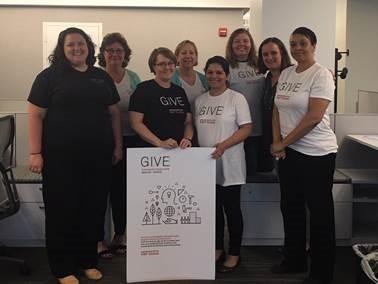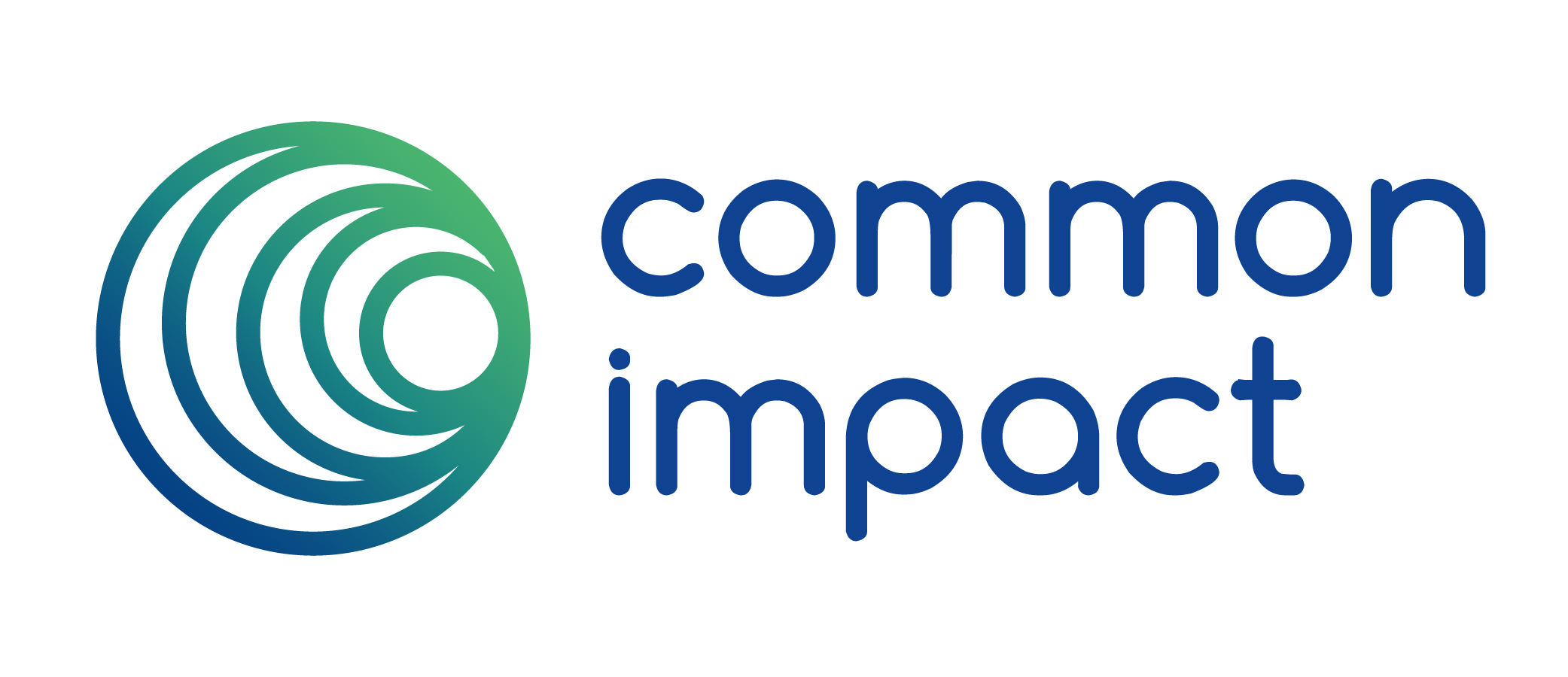Turning Data into Stories: S&P Global Volunteers & SARA Share Community Impact
by Marjie Bland

In June, Common Impact worked with our corporate partner S&P Global to deploy a team of skilled volunteers in Charlottesville, VA. The volunteer team was eager to share their expertise in data management with a nonprofit partner seeking to better communicate their stories of impact through data. SARA or the Sexual Assault Recovery Agency was excited to work with S&P experts to help organize their existing metrics and identify key data to highlight the effectiveness and importance of their prevention and response activities. While we’ve worked on data management engagements in the past, what made this particular project unique was the participation from the of an entirely female volunteer team working with a nonprofit whose mission, although not exclusive to women, was timely and focused on issues critical to women.
SARA is an organization that works to eliminate sexual violence and its impact. SARA achieves this mission through education, advocacy and support to men, women and children. The organization envisions a community free from sexual violence and their efforts support more than 550 survivors each year. In addition to counseling and crisis services, SARA also focuses on the prevention of sexual violence through several education and outreach programs, which reach an estimated 6,000 – 8,000 students each year.
For this skilled volunteer project, the team focused on helping SARA share success metrics and stakeholder stories from their middle school to junior high curriculum, which partners with schools to offer teacher training and classroom-based violence prevention education. Tailored to each school’s need, the program covers several key themes such as understanding boundaries, addressing gender myths and emphasizing clear partner consent. SARA’s leadership team was keen to work with outside experts to use data to craft compelling stories and share the organization’s impact on their community, hopefully, attracting new funders and schools in the process. SARA Director of Prevention Laurie Jean Seaman perhaps said it best when she described the project as “turning data into stories.”
The S&P team supported SARA through a Day of Service event, in which a small team of volunteers work quickly but intensely alongside the nonprofit to develop a solution in the course of one day. What’s amazing about a day of service is just how quickly trust and expertise is established between the nonprofit and the corporate volunteer team. In order to be successful, you absolutely have to rely on the knowledge of each partner and the power of the team. This project proved no different.
To frame the day, the team heard a brief presentation on the sexual violence prevention work that SARA leads, which proved to be eye-opening for the S&P team. In light of the #MeToo and #TimesUp movements, the team was inspired to hear that this prevention work took place as early as 6th grade and was so successful in not only reducing sexual assault but also fostering healthy relationship development. With this new knowledge, the volunteers dove into SARA’s already robust database to help the organization highlight metrics that best crafted a compelling story around their prevention work. Within a day, the volunteers identified new opportunities to utilize data collected from the school-based program and recommended innovative ways to incorporate these metrics to support new outreach and relationships for the nonprofit.
SARA Executive Director Becky Weybright summed up the day’s success by declaring,
“I couldn’t have asked for a better team from S&P Global. They were interested in our work, invested in helping us, and ready and willing to share. I know that we will take feedback from this day and use it as we move forward.”
All told, the social return on investment for this day of service project was estimated at $105,000. But the professional development opportunities for both the S&P volunteers and the leadership team at SARA go far beyond just a day. The organizations will remain connected – not only to continue work on data management and other pro bono service projects but also to further support each other professionally and personally as they develop new skills and refine existing expertise through collaboration.

